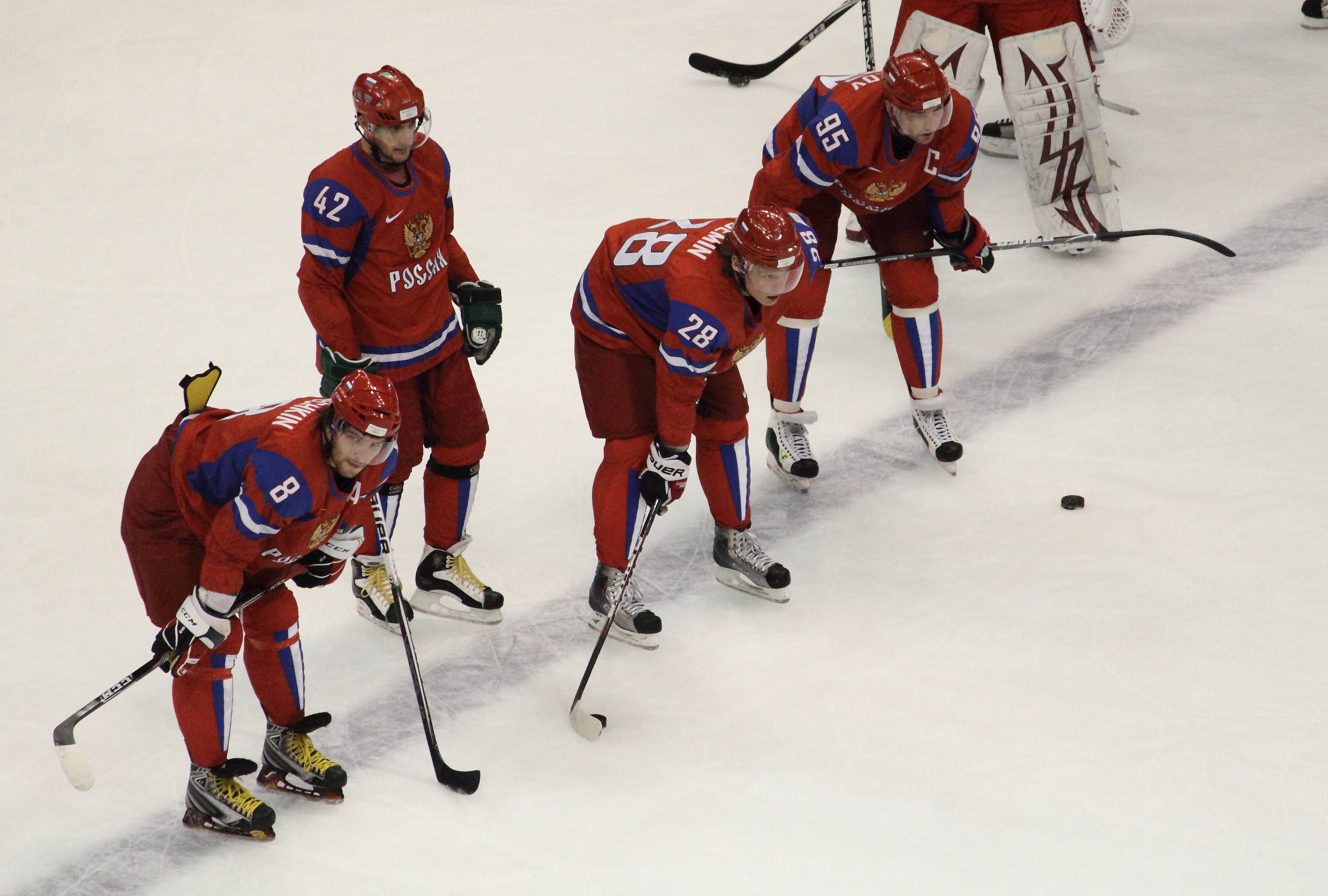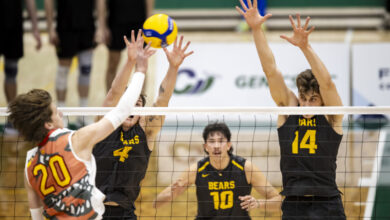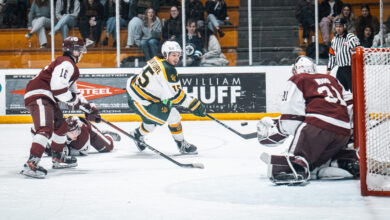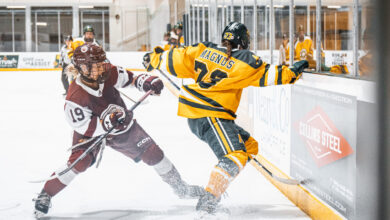Point/Counterpoint: Russians leaving the ice for Canada’s national anthem was classless
 Chase N
Chase NPoint: Leaving the ice for the national anthem makes you look like a child.
Isn’t one of the main tenets of international sporting events sportsmanship? I mean, when was the last time you didn’t see at least a courtesy handshake shared between teams at the end of an international hockey event? That’s what makes Russia’s unsportsmanlike display extremely childish.
For one thing, they’re eschewing a tradition that has become just as entrenched in international hockey tradition as the game itself. Russia decided to try to make the post game celebrations as much about them as possible, saluting the mostly Russian crowd in Prague, then leaving before Canada’s national anthem was played.
From a merely practical standpoint, this choice seems fairly ridiculous as well because they award medals to both teams after the gold medal game. Did the Russians tell the organizers to bring the medals to their dressing room? Or did they come back out to accept them? Either way, it makes the team simply look like overgrown children who don’t fully understand the concepts of sportsmanship and courtesy.
Another more interesting facet of this whole charade was the fact that not all Russian players seemed to be eager to leave the ice, chiefly, Alex Ovechkin – who is probably the most well known and respected Russian NHL player. According to reporters on scene, former NHLer Ilya Kovalchuk, who is no stranger to leaving situations unexpectedly (sorry New Jersey), orchestrated the ice exit.
If nothing else, this shows the absolute chasm between the NHL and KHL, and how the KHL may be harbouring some resentment to the fact that some Russian born players still aspire to play in the NHL rather than the KHL. But hey, let me take off my tinfoil hat and get back to the point: don’t be a poor sport.
– Zach Borutski
Counterpoint: Who cares? It was only the World Championships.
Hockey codes are vital to the game. They make hockey interesting and actually serve a purpose by regulating athletes during extreme psychological and emotional chaos. The idea of sportsmanship keeps athletes with knives on their feet from kicking at each other’s throats during the game.
Russia embarrassed themselves in the World Championship final game, losing 6-1. They were outshot 14-1 in the second period, goaltender Sergei Bobrovsky lost his confidence half-way through the game, and afterwards, Alex Ovechkin said his team “threw the game away.”
Any athlete who performed so poorly would feel ashamed and humiliated. But this entire thing is getting more attention than it deserves. The World Championship is an obscure tournament that people only pay attention to in passing. Hardly anyone would care about this year’s tournament if Russia hadn’t turtled off the ice.
More importantly, people are only upset because Russia’s behaviour violates the hockey code. But this doesn’t mean all aspects of the code must be maintained at all times by everyone. Occasionally disregarding the code wouldn’t result in a descent into relativism that would allow PK Subban to score a goal and behave like the Calgary Stampeders or allow Sean Avery to poop in Martin Brodeur’s helmet in the handshake line. Russia’s turtling is an unusual, isolated incident and the players’ impulse to self-loathe misanthropically is perfectly understandable given their awful performance. If they were playing for the Soviet Red Army, they’d be sent to the gulag.
Resorting to tradition is usually weak justification for anything. There is no reason to keep the losing team on the ice after a victory, and such an expectation is arbitrary. The Russians wouldn’t even sing ‘O Canada’ in tune anyway.
– Josh Greschner





I think you meant tenets not tenants. Sad, when a journalist has such poor command of basic English.
Everyone makes mistakes. Clearly your parents made many while raising you.